What are the healthiest foods for a balanced diet?
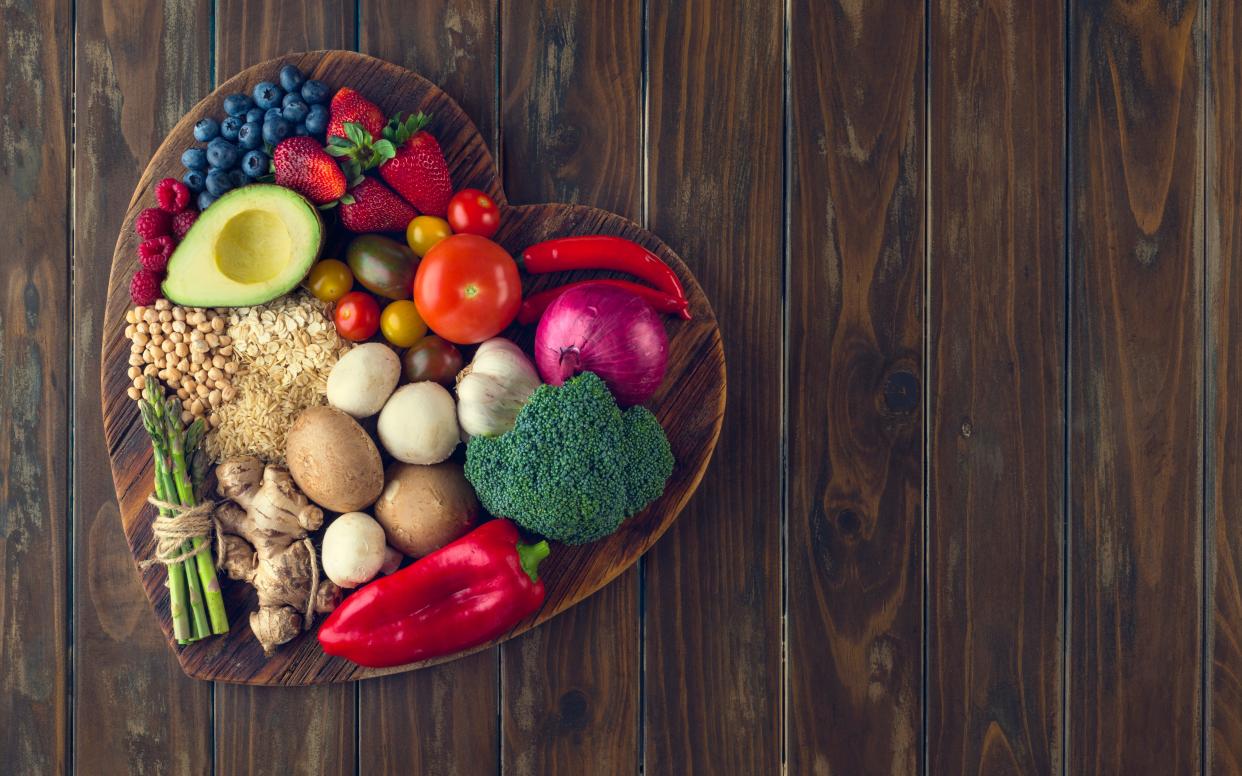
Everyone knows that a balanced diet is essential to enjoying a long, healthy life. And we all know that we're supposed to aim for five servings of fresh fruit and vegetables a day, as well as avoiding the temptations of a McDonald's Big Mac.
However... what does a balanced diet actually mean? Apart from the obvious – a little bit of everything and not too much of anything – it may not be clear what specific foods you should look to eat. For example, it's estimated that 75 per cent of the population doesn't reach the recommended dose of 300mg of magnesium a day. Clearly an imbalance – but how do you fix it?
Fear not – we're here to help. There are a number of nutrient rich foods that you can add to, or increase in, your diet, en route to attaining your maximum health. Below, we've listed twelve of the key additions, from cruciferous vegetables, to quinoa.
Bon appetit...
1. Cruciferous vegetables

Cruciferous vegetables include broccoli, cauliflower, cabbage, Brussels sprouts, and kale. They're largely part of the family of brassicaceae, which takes its alternative name crucifare from the Latin for cross, because their four central leaves resemble a cross.
Curciferous vegetables really have it all: vitamins, fibre, and disease fighting phytochemicals. A nutrient-packed powerhouse.
2. Lean beef and chicken breast
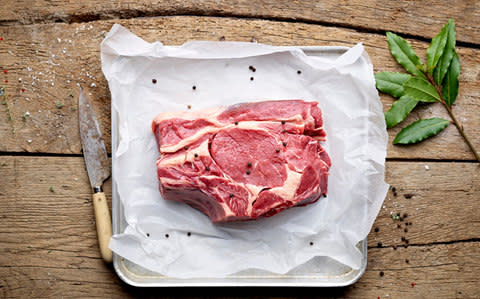
We all need protein in our diets – and for meat eaters, it's beneficial to find the leanest source going. Chicken and certain cuts of beef (ask your butcher) are best.
Studies show that increasing your protein intake to around 30 per cent of your daily calorie intake can reduce late-night snacking resulting in the loss of around half a pound of fat a week. However, you should also be careful not to overeat meat protein – remember, we're going for a balanced diet here. A few times a week should do nicely.
3. Boiled potatoes
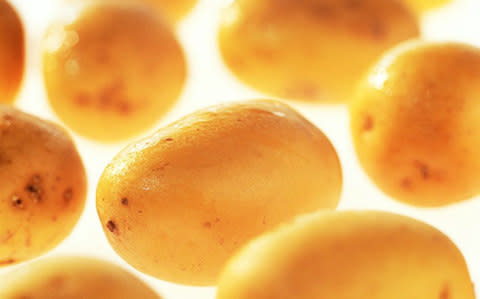
Despite falling out of fashion in the post-Atkins era, potatoes are a wonderful, nutritious ingredient. They're particularly high in potassium, a nutrient of which most people are deficient, and which plays an important role in keeping blood pressure at a minimum.
Roasting them is delicious – but also adds unnecessary fat to your diet. Instead, boil them, then allow them to cool for a short while so that they build up resistant starch, a fibre-like substance that has lots of health benefits, including keeping you fuller for longer.
4. Quinoa

Quinoa has become an increasingly trendy 'health food' – and the hype is justified. There are multiple health benefits to eating it, including that it's high in protein (a good source for non-meat eaters), anti-oxidants and minerals.
The super-food is often incorrectly referred to as a grain, but it is actually an edible seed that's native to the Andes, and is related to beetroot, Swiss chard and spinach.
5. Salmon and oily fish

Oily fish such as salmon, mackerel, and herring are a key way of upping your protein and Omega 3s – essential to healthy bones, skin and hair. If you are vegan or vegetarian, make sure to include a good quality vegetable-based Omega 3 oil to your daily diet, which is abundant in sources such as soy, walnuts, canola oil, and chia, flax, and hemp seeds.
6. Beans and legumes

Legumes, a class of vegetables that includes beans, peas and lentils, are among the most versatile and nutritious foods available. They're typically low in fat, contain no cholesterol, and are high in folate, potassium, iron and magnesium (so there's an answer to that earlier question, for the 75pc of people who are deficient). They also contain beneficial fats and soluble and insoluble fibre – perfect for keeping you feeling fuller for longer.
Whip up a bean casserole as a great, protein and mineral rich alternative to meat.
7. Whole eggs
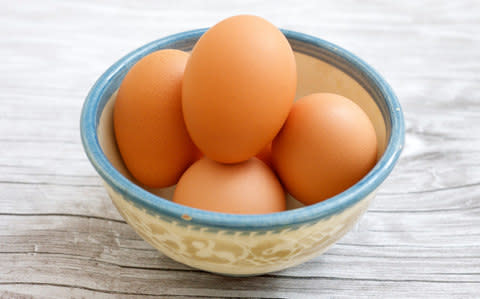
Eggs are great source of inexpensive, but still high quality protein. Eggs are rich in several nutrients that promote the health of the heart, and are recommended to pregnant women as they are rich in choline, which is essential for normal brain development. As an addition to your day-to-day diet, eggs provide a large dose of Vitamin D, which is great for your bones, and prevents osteoporosis.
Why not poach one for breakfast, and eat with some smashed avocado on sourdough? This may sound hipster, but the additional protein will help to keep hunger locked up until lunch!
8. Oils, spreads and healthy fats

Oils and spreads are a key aspect in a balanced diet, because including some healthy fats into the diet is essential. It's important to swap cholesterol-inducing trans fats with healthy unsaturated alternatives.
Try cooking with coconut oil, which burns at a much higher heat than other oils, meaning it's less likely to produce carcinogens. Other brilliant oils that are essential to include in a healthy diet are olive oil, and fats from vegetables such as avocados.
9. Avocados
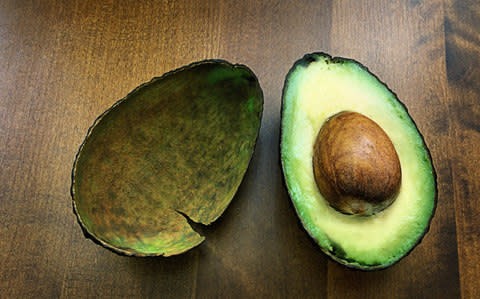
Avocados are included in the range of healthy fats - which are essential to the health of our bodies and overall well-being. Some of their many health benefits include that they're mineral rich, they're high in vitamin K which is good for your bones, and they help maintain low cholesterol, which in turn is great for the heart.
Include them in your diet by smashing them on sourdough toast, and eating with poached eggs for a delicious breakfast.
10. Nuts
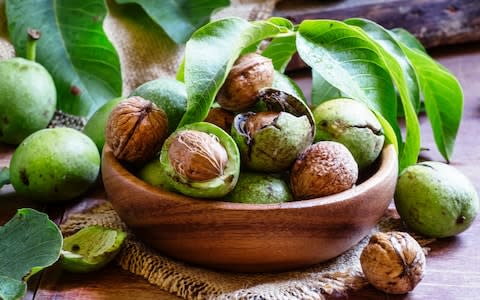
Of course, there are many different nuts, and each has its own specific health benefit. However, as a whole, they're packed with protein, as well as being a source of polyunsaturated fats, and heaps of fibre. A golf-ball sized amount of mixed nuts – about 30g – is recommended as a great mid-morning or mid-afternoon snack.
Almonds are a great source of calcium for those who avoid dairy; Brazils are a source of selenium; and walnuts contain an impressive amount of antioxidants, which could fight against cancer.
11. Fruit and a range of vegetables

Fruit and vegetables are a vital source of vitamins and minerals, and should make up at least a third of your daily diet. It's advised that you aim for eating five portions of fruit and vegetables each day in order to maintain maximum health. There is evidence that people who eat their allotted quota every day decrease their chances of contracting cancer, heart disease and strokes.
12. Dairy products or dairy substitutes

There is one main benefit to including dairy in your diet, and that's calcium. Calcium is essential for the normal development of our bones, and regular consumption is key for avoiding ailments such as osteoporosis in your old age. It's high potassium and magnesium content is also essential for the health of your heart.
If you're avoiding dairy due to a lactose intolerance, it's important to include a calcium supplement in your day-to-day diet. Calcium-enriched alternatives such as fortified soy milk, cheese and yoghurt are great alternatives.

 Yahoo News
Yahoo News 
